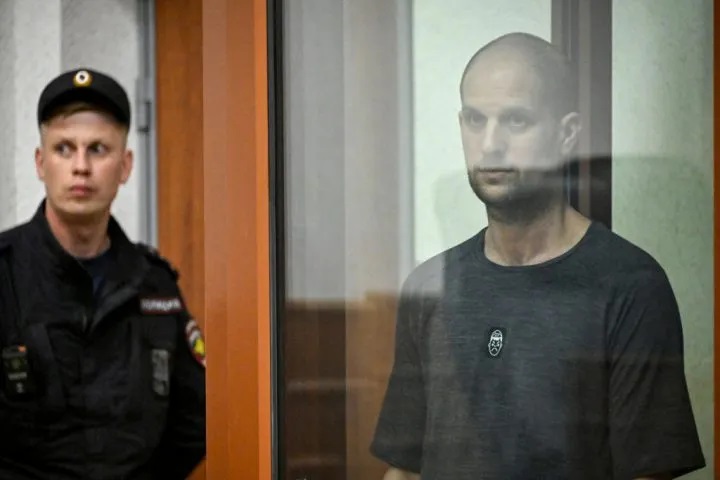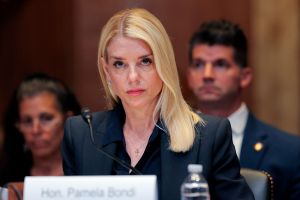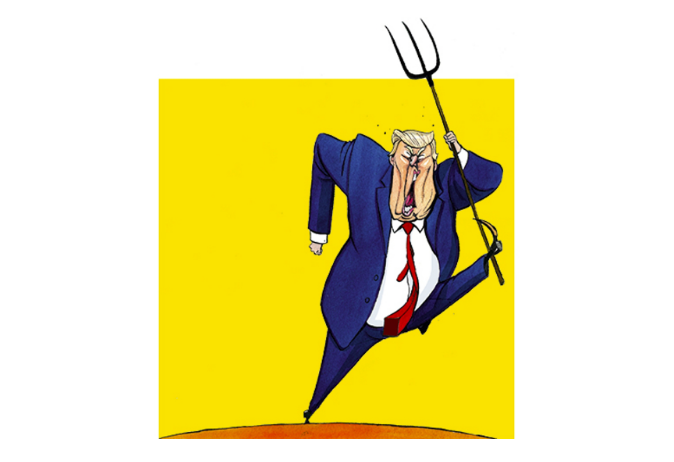The Kremlin has released Wall Street Journal reporter Evan Gershkovich, former marine Paul Whelan and British-Russian dissident Vladimir Kara-Murza from captivity. This is the biggest prisoner swap between Russia and the West since the end of the Cold War. The three men form part of a group of prisoners released this morning, reportedly numbering as many as sixteen. In return, the US and its allies will return as many as eight prisoners to Russia.
While it is unclear exactly when and where the exchange is taking place, a plane belonging to the elite flight squadron “Russia” was tracked flying from Moscow to the Russian enclave of Kaliningrad this morning. The plane was the same one used in the prisoner exchange between the US basketball player Britney Griner and convicted Russian arms dealer Viktor Bout in December 2022 and can carry up to thirty-five passengers. The plane’s trip was seen as the first confirmation that something major was underway. The Turkish intelligence service has since confirmed that it is coordinating the prisoner swap via Ankara.
The large number of high-profile prisoners released after many years will prompt the question of why now?
This prisoner swap marks a big diplomatic coup for the West, with the UK, Germany, Slovenia and Norway participating alongside the US in negotiations. Berlin is reportedly giving up the hitman Vadim Krasikov, serving a life sentence for the murder of a Chechen dissident in the German capital in 2019. Earlier this year, he was linked to the Russian opposition figure Alexei Navalny, after reports the Kremlin was in discussions with the West to swap the two before Navalny’s untimely death in February.
Alongside Gershkovich, Kara-Murza and Whelan, Russia has also reportedly released the opposition politician Ilya Yashin, human rights activist Oleg Orlov and the artist Sasha Skochilenko, imprisoned for seven years in 2023 for replacing supermarket labels with anti-war messages. Several other opposition politicians and journalists are also said to be among those released.
Gershkovich, thirty-two, was arrested in March last year while on assignment for the WSJ in the southern city of Yekaterinburg and falsely accused of spying. For the following year he was held at the notorious Lefortovo detention center in Moscow before being sentenced to sixteen years in jail just three weeks ago. It was the first time since the Cold War that Russia had tried a US reporter for espionage.
Whelan, fifty-four, was arrested in Moscow in 2018 on trumped-up allegations of espionage when he traveled to Russia from the US to attend the wedding of a former colleague. He was sentenced to sixteen years in prison in 2020, in a move widely believed to be motivated by the Kremlin’s desire to orchestrate a prisoner swap for Russian nationals held in the US.
Kara-Murza, forty-two, was a persistent anti-Putin campaigner who was sentenced to a record twenty-five-year jail term in April last year for treason and other charges to do with criticizing Russia’s invasion of Ukraine. This was the longest sentence handed down to a political prisoner in Russia since the end of the Cold War. Earlier this year, his wife spoke to The Spectator about his imprisonment and voiced her concerns for his health following two Kremlin-sanctioned poisoning attempts over the past decade.
The release of these prisoners follows several days of concerning news during which it was reported that legal teams representing some of the prisoners being freed today, including Kara-Murza’s, were unable to locate their clients in the Russian penal system. Unexplained transfers and disappearances are always treated with alarm by prisoners’ loved ones as it is then that prisoners are usually most vulnerable to abuse and torture. The prisoners’ health will undoubtedly be assessed once they reach safety.
The large number of high-profile prisoners released after years of what amounted to a stockpiling of hostages will prompt the question of why now? In releasing so many at once, Putin is letting go of a large number of valuable political bargaining chips. It may be that the Kremlin’s motive for this prisoner swap will only become clear in the coming days, weeks or indeed maybe even months. But, for today, the West will celebrate the safe return of these people, so ruthlessly used as pawns in Putin’s political game.
This article was originally published on The Spectator’s UK website.


























Leave a Reply